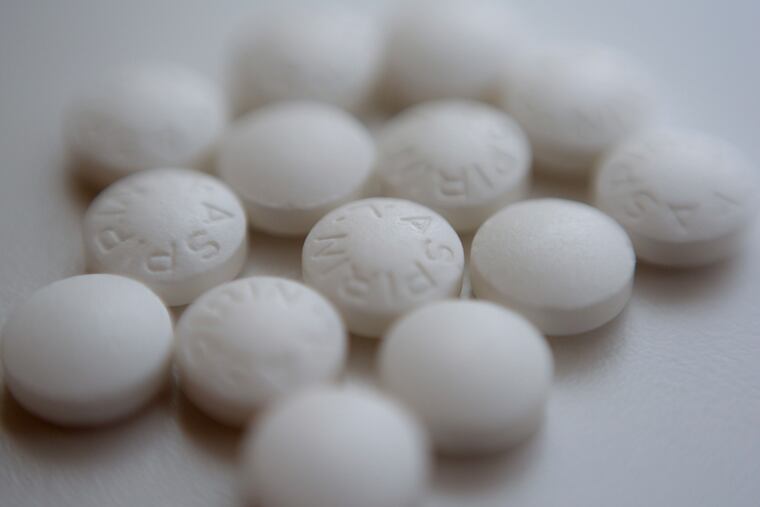Taking a daily aspirin for heart health is not an easy call l Expert Opinion
The original recommendation to take aspirin prophylactically goes back to the 1970s and '80s. But medical science has advanced, and so should your thinking on daily aspirin.

Taking a daily low dose of aspirin to prevent heart disease had been a mainstay in cardiac treatment for more than 40 years. Recent changes in recommendations by the U.S. Preventive Services Task Force have led many patients to call their doctor seeking advice, and likely many people have stopped their daily aspirin even without medical input.
The recommendations are confusing and seem to represent a flip-flop. How can aspirin be good for you one minute and bad for you the next? Why would the recommendations be so complicated? The point of this piece is to explain how this occurred, and to simplify these suggestions.
» READ MORE: A cardiologist on why you should consider cutting down on sugar.
The original recommendation to take aspirin prophylactically goes back to the 1970s and ‘80s, when cardiologists discovered that heart attacks were caused by tiny blood clots that were responsible for blocking the blood vessels supplying the heart. In those heady days of discovery, clot-busting drugs and aspirin became the mainstays of therapy for treating heart attacks, and it was a natural extension to expand the use of aspirin preventively.
This was before the discovery of statins and many blood pressure medications, which have been shown to decrease the risk of developing heart disease and preventing its recurrence. The utilization of coronary stents and bypass surgery has reinforced the use of aspirin and other “super” aspirin medications such as clopidogrel (Plavix), as stents have a high chance of developing blood clots without them.
For the first time, studies have been done looking at the risks and benefits of taking aspirin today, along with all the other therapies that are available.
If you are taking aspirin for primary prevention (meaning you have never had a heart attack, stroke, bypass, or stent), then aspirin may cause more harm than good, especially if you’re over 60. The major harm is of internal or gastrointestinal bleeding. This led to the recent recommendation to not take aspirin for primary prevention.
» READ MORE: Following the science to a new conclusion on fish oil supplements.
If you are taking aspirin for secondary prevention — meaning that you’ve already had bypass surgery, a stroke, stent, or heart attack, or have significant coronary blockages — right now we do not know how long aspirin should be taken beyond at least one year. After one year, some doctors are beginning to recommend stopping aspirin, but this is not established practice at this time. The dose should usually be 81 mg/day, not 325 mg, as the higher dose increases the risk of bleeding.
If you have congestive heart failure, there are some troubling concerns regarding daily aspirin. In a study published in the European Society of Heart Failure, the use of aspirin was associated with an increasing risk of heart failure, with or without a prior history of coronary blockages.
At this point, I would not recommend stopping low dose aspirin if you are taking it for secondary prevention, but this suggestion may change, depending on future studies. If you have bleeding and it has been years since you have had any cardiac issues, speak to your doctor. In that case, it might be discontinued. If you are still taking aspirin for primary prevention, speak to your doctor as you may no longer need it.
David Becker is a board-certified cardiologist with Chestnut Hill Temple Cardiology in Flourtown. He has been in practice for more than 25 years.